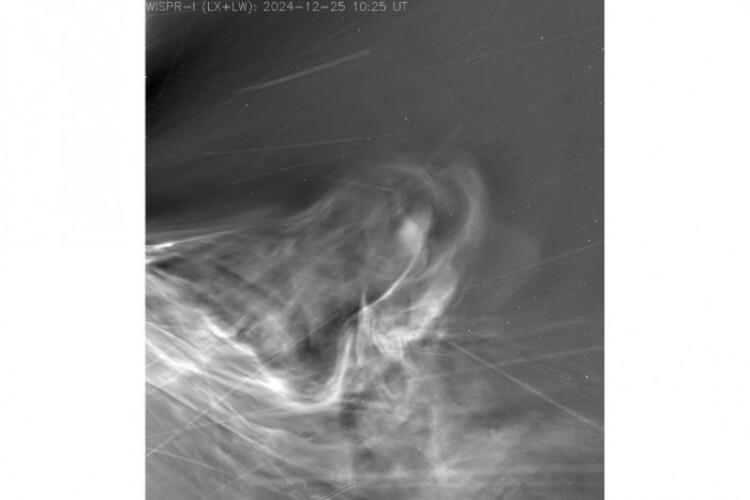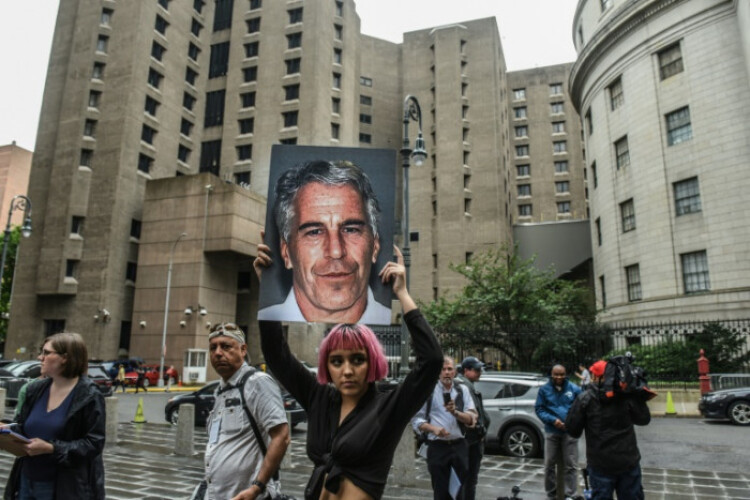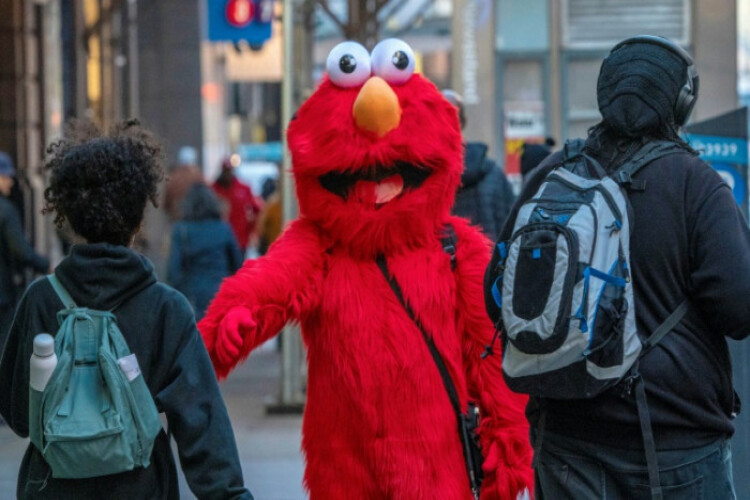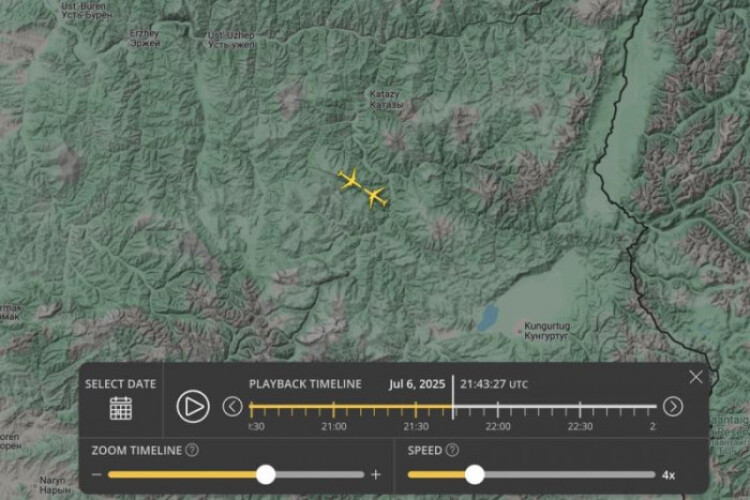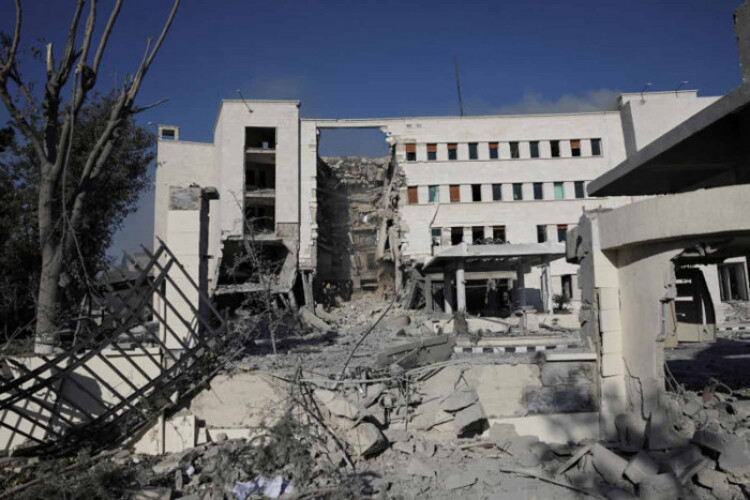
Israel struck Syria’s military headquarters in Damascus on Wednesday and moved more troops to the border in a bid, officials said, to prevent attacks against the Syrian Druze community.
Israeli forces have stepped up operations in Syria since Monday after deadly fighting between Druze, Bedouin groups and Syrian troops in the southern area of Suwayda. The Syrian Observatory for Human Rights said at least 360 people have been killed in the violence in recent days, with 27 being executed. The deaths include 207 members of the Syrian security forces, the SOHR said.
US Secretary of State Marco Rubio said all the parties involved in the clashes have come to an agreement to stop the violence soon. “We have agreed on specific steps that will bring this troubling and horrifying situation to an end tonight,” he said in post on X, without providing details.
Rubio earlier said the US was “very concerned” and “we want it to stop,” though stopped short of calling on Israel to halt its actions.
Syria’s state news agency, Sana, reported Wednesday afternoon that groups in Suwayda had agreed to a ceasefire. However, clashes reignited after the truce, according to SOHR.
There was no immediate comment from Israel on the ceasefire, and its military said strikes on southern Syria were continuing.
The Israeli attacks on Damascus and Suwayda killed “innocent” people, wounded tens including women and children, and extensively damaged infrastructure and public services, the Syrian Foreign Ministry said.
Israel has accused the new Syrian government of President Ahmed al-Sharaa of directing fighting against the Druze, a minority group the Jewish state has pledged to protect. Israel also says a buildup of Syrian troops near its north-eastern border is a security threat.
Syria’s been devastated by civil war since 2011 and Sharaa, who led an overthrow of Bashar al-Assad’s regime in December, is still trying to gain full control over large swaths of the country and its institutions, including the military. His government said it sent troops into Suwayda to try to end the violence and that it will identify and punish those found responsible. Sharaa has also said he does not want hostile relations with Israel.
While Israel’s strikes and the clashes have been confined to Syria, they are raising regional tensions. The Gulf Cooperation Council, which includes Saudi Arabia, described Israel’s air strikes as an irresponsible escalation likely to further destabilize Syria.
Drone Attacks
Sana reported at least two explosions in Damascus on Wednesday and drone attacks in Suwayda, as well as strikes on the nearby city of Daraa.
Israeli Defense Minister Israel Katz, speaking before the announcement of the ceasefire in Suwayda, said the military would “continue to attack regime forces until they withdraw” from the governorate.
The Israel Defense Forces said some Israeli Druze were trying to cross into Syria, while other people were attempting the opposite journey.
“We are acting to save our Druze brothers and to eliminate the gangs of the regime,” said Israeli Prime Minister Benjamin Netanyahu. “I have a single request of you: you are Israeli citizens. Do not cross the border. You are risking your lives; you could be murdered, you could be taken hostage, and you are impeding the efforts of the IDF.”
The roughly 700,000-strong Druze community in Syria has forged closer ties with Israel — which has about 150,000 Druze — since the collapse of Assad’s government. It has feared a sectarian backlash from Islamist militants allied with the new administration of Sharaa, who’s a former al-Qaeda commander.
The Druze are Arabs whose faith is an offshoot of Islam. There are 1 million of them, living mostly in Syria, Lebanon and Israel. Israeli Druze men do military service and, with their Arabic and loyalty to the Israeli state, often rise high in the ranks.
There are around 20,000 Druze in the Golan Heights, which Israel conquered from Syria in 1967 and annexed in 1981. Most of those Druze identify more with Syria than Israel, although there have been signs of that changing among the younger generations.
Israel positioned some ground forces on Syrian territory soon after Assad, an ally of Iran, was deposed and fled to Russia. Israeli forces regularly struck Syria this year and the country’s leaders remain wary of Sharaa, who says he’s reformed since his days of fighting US troops in Iraq.
In the past month Israel said it was open to a peace deal with Damascus, something that seemed to be given impetus by President Donald Trump ending sanctions on the Syrian government.
Trump met Sharaa in Saudi Arabia in May and wants to help the country recover from almost 15 years of civil war. Washington and Gulf states are keen to ensure Syria isn’t pulled back into the orbit of Iran, a key backer of Assad and which used the country to funnel weapons and money to Hezbollah, an anti-Israel militant group, in Lebanon.
Israel has fought several conflicts since Hamas’ invasion on Oct 7, 2023, which triggered the ongoing war in Gaza. It battled Hezbollah last year and Iran last month. Israel also attacked Syria several times in 2024, partly to hit Hezbollah’s supply lines. That contributed to Assad’s downfall.
Israeli forces have stepped up operations in Syria since Monday after deadly fighting between Druze, Bedouin groups and Syrian troops in the southern area of Suwayda. The Syrian Observatory for Human Rights said at least 360 people have been killed in the violence in recent days, with 27 being executed. The deaths include 207 members of the Syrian security forces, the SOHR said.
US Secretary of State Marco Rubio said all the parties involved in the clashes have come to an agreement to stop the violence soon. “We have agreed on specific steps that will bring this troubling and horrifying situation to an end tonight,” he said in post on X, without providing details.
Rubio earlier said the US was “very concerned” and “we want it to stop,” though stopped short of calling on Israel to halt its actions.
Syria’s state news agency, Sana, reported Wednesday afternoon that groups in Suwayda had agreed to a ceasefire. However, clashes reignited after the truce, according to SOHR.
There was no immediate comment from Israel on the ceasefire, and its military said strikes on southern Syria were continuing.
The Israeli attacks on Damascus and Suwayda killed “innocent” people, wounded tens including women and children, and extensively damaged infrastructure and public services, the Syrian Foreign Ministry said.
Israel has accused the new Syrian government of President Ahmed al-Sharaa of directing fighting against the Druze, a minority group the Jewish state has pledged to protect. Israel also says a buildup of Syrian troops near its north-eastern border is a security threat.
Syria’s been devastated by civil war since 2011 and Sharaa, who led an overthrow of Bashar al-Assad’s regime in December, is still trying to gain full control over large swaths of the country and its institutions, including the military. His government said it sent troops into Suwayda to try to end the violence and that it will identify and punish those found responsible. Sharaa has also said he does not want hostile relations with Israel.
While Israel’s strikes and the clashes have been confined to Syria, they are raising regional tensions. The Gulf Cooperation Council, which includes Saudi Arabia, described Israel’s air strikes as an irresponsible escalation likely to further destabilize Syria.
Drone Attacks
Sana reported at least two explosions in Damascus on Wednesday and drone attacks in Suwayda, as well as strikes on the nearby city of Daraa.
Israeli Defense Minister Israel Katz, speaking before the announcement of the ceasefire in Suwayda, said the military would “continue to attack regime forces until they withdraw” from the governorate.
The Israel Defense Forces said some Israeli Druze were trying to cross into Syria, while other people were attempting the opposite journey.
“We are acting to save our Druze brothers and to eliminate the gangs of the regime,” said Israeli Prime Minister Benjamin Netanyahu. “I have a single request of you: you are Israeli citizens. Do not cross the border. You are risking your lives; you could be murdered, you could be taken hostage, and you are impeding the efforts of the IDF.”
The roughly 700,000-strong Druze community in Syria has forged closer ties with Israel — which has about 150,000 Druze — since the collapse of Assad’s government. It has feared a sectarian backlash from Islamist militants allied with the new administration of Sharaa, who’s a former al-Qaeda commander.
The Druze are Arabs whose faith is an offshoot of Islam. There are 1 million of them, living mostly in Syria, Lebanon and Israel. Israeli Druze men do military service and, with their Arabic and loyalty to the Israeli state, often rise high in the ranks.
There are around 20,000 Druze in the Golan Heights, which Israel conquered from Syria in 1967 and annexed in 1981. Most of those Druze identify more with Syria than Israel, although there have been signs of that changing among the younger generations.
Israel positioned some ground forces on Syrian territory soon after Assad, an ally of Iran, was deposed and fled to Russia. Israeli forces regularly struck Syria this year and the country’s leaders remain wary of Sharaa, who says he’s reformed since his days of fighting US troops in Iraq.
In the past month Israel said it was open to a peace deal with Damascus, something that seemed to be given impetus by President Donald Trump ending sanctions on the Syrian government.
Trump met Sharaa in Saudi Arabia in May and wants to help the country recover from almost 15 years of civil war. Washington and Gulf states are keen to ensure Syria isn’t pulled back into the orbit of Iran, a key backer of Assad and which used the country to funnel weapons and money to Hezbollah, an anti-Israel militant group, in Lebanon.
Israel has fought several conflicts since Hamas’ invasion on Oct 7, 2023, which triggered the ongoing war in Gaza. It battled Hezbollah last year and Iran last month. Israel also attacked Syria several times in 2024, partly to hit Hezbollah’s supply lines. That contributed to Assad’s downfall.




